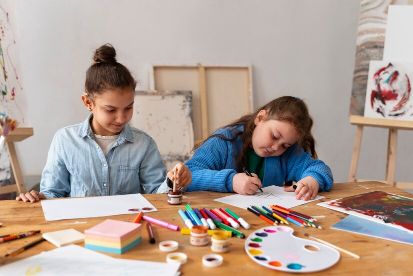In this digital age, it’s important to encourage young children to engage in non-screen activities for their growth and development. Non-screen games not only help enhance their cognitive and motor skills but also provide opportunities for social interaction and creativity. If you are looking for some fun and educational games for children under 5 years, here are the top non-screen games to consider:
1. Building Blocks
Building blocks are a classic and versatile game that can be enjoyed by children of all ages. They help improve fine motor skills, hand-eye coordination, spatial awareness, and creativity. Children can use their imagination to construct towers, buildings, and various shapes using different types of blocks.
2. Puzzles
Puzzles are excellent for developing problem-solving skills and logical thinking. Choose puzzles with larger, colorful pieces that are suitable for young children. Start with simple puzzles with fewer pieces and gradually increase the complexity as your child progresses. Puzzles also enhance hand-eye coordination and patience.
3. Memory Games
Memory games are great for enhancing cognitive skills and memory. You can create your own memory game by using picture cards or purchase ready-made memory card games available in stores. This game requires children to focus, remember, and match pairs of cards, which improves concentration and memory skills.

4. Pretend Play
Pretend play is an imaginative and social activity that allows children to step into different roles and explore their creativity. Provide them with costumes, props, and playsets to encourage role-playings, such as pretending to be doctors, firefighters, or chefs. Pretend play helps develop language skills, problem-solving abilities, and social interaction.

5. Musical Instruments
Introduce your child to musical instruments, such as a small keyboard, xylophone, or drums. Playing musical instruments not only introduces them to the world of music but also enhances hand-eye coordination, rhythm, and auditory skills. Singing along or dancing to the music can further enhance their development.

6. Indoor Obstacle Course
Create a mini indoor obstacle course using pillows, hula hoops, tunnels, and other safe household items. This activity promotes physical activity, motor skills, coordination, and balance. Set up challenges and encourage your child to complete the course, providing plenty of praise and encouragement along the way.
7. Arts and Crafts
Engaging in arts and crafts activities helps develop fine motor skills, creativity, and self-expression. Provide your child with coloring books, crayons, paints, colored pencils, and various art supplies. Encourage them to freely draw, paint, and create their own masterpieces. You can also do simple crafts together, such as making paper collages, finger painting, or creating handprint art.

8. Outdoor Play
Outdoor play is essential for a child’s physical and cognitive development. Take your child to a safe and secure outdoor space where they can run, jump, climb, and explore. Outdoor play promotes gross motor skills, and sensory development, and provides a natural learning environment for children to discover the world around them.
Remember, screen time should be limited for children under 5 years old. These non-screen games not only offer entertainment but also contribute to your child’s growth and development. Engage with them in these activities, provide guidance and encouragement, and watch as they learn, grow, and have fun!



